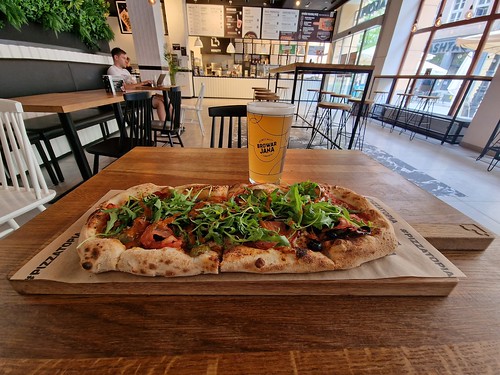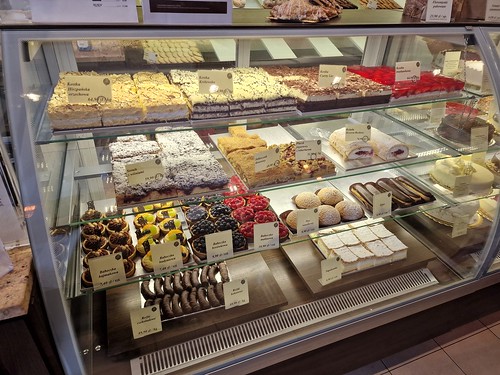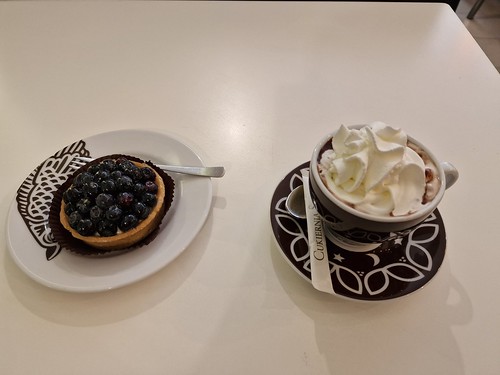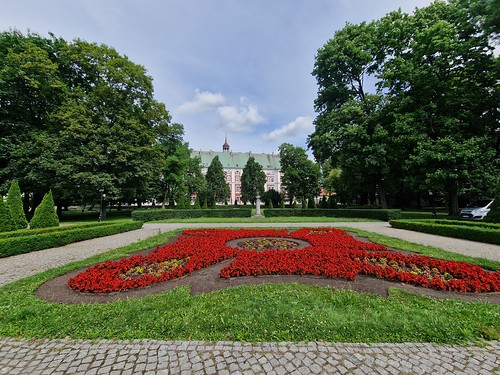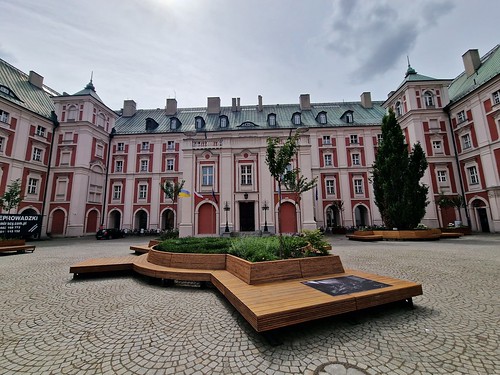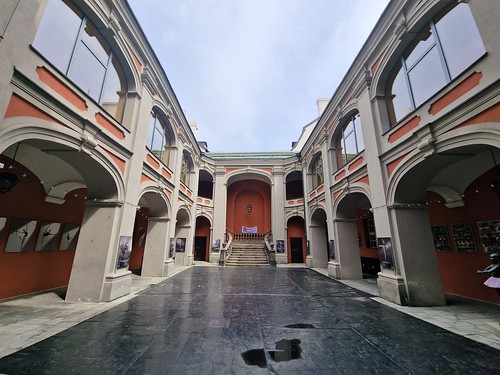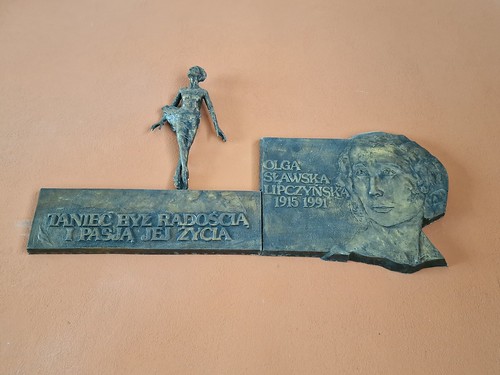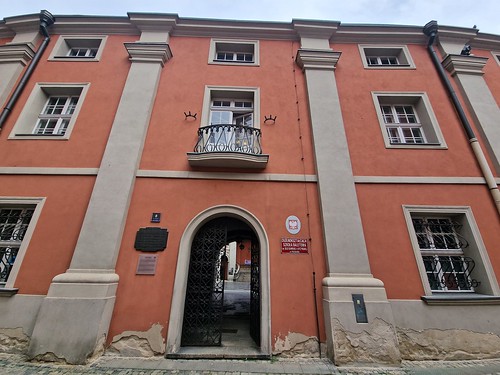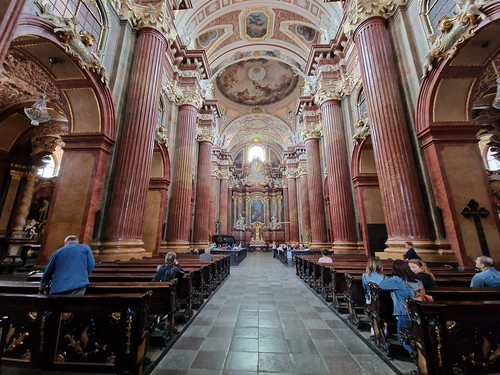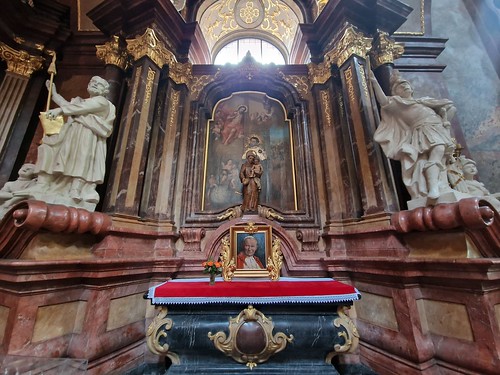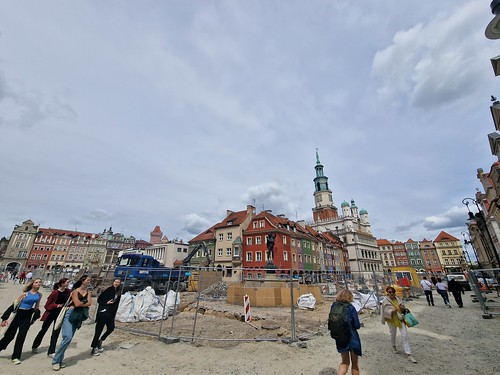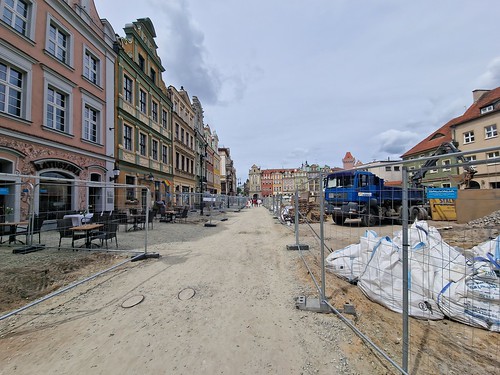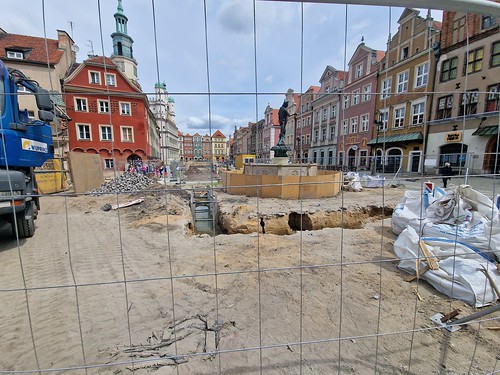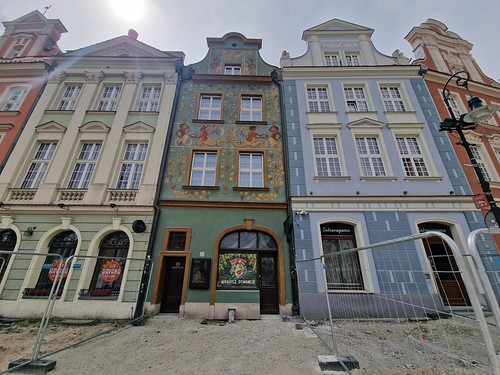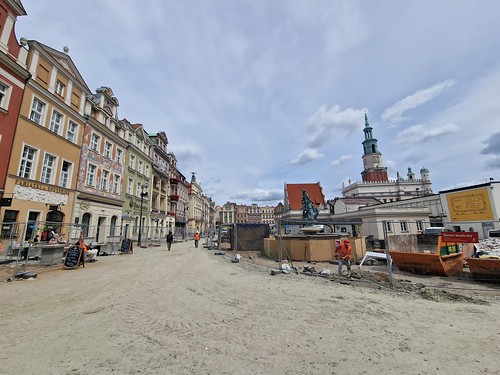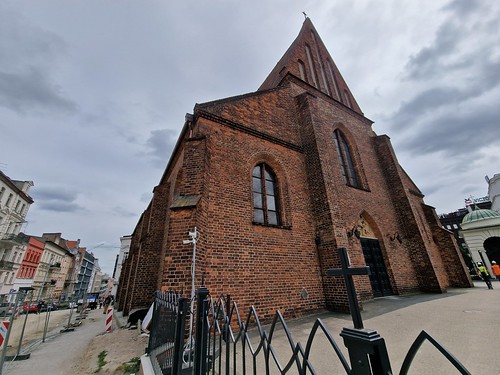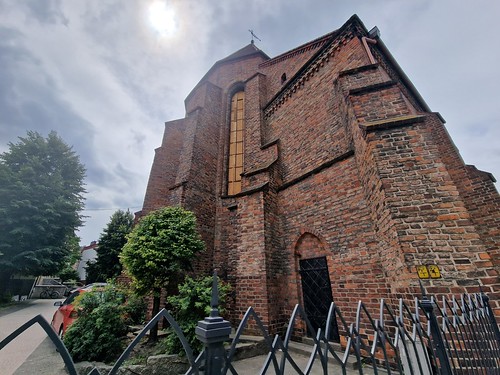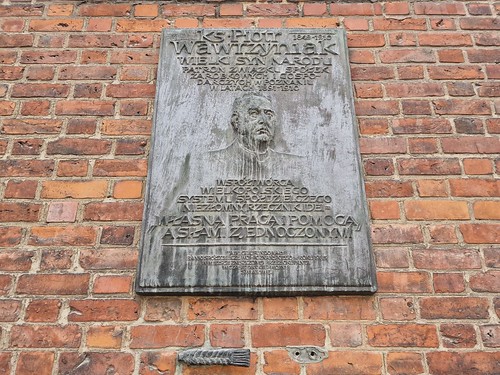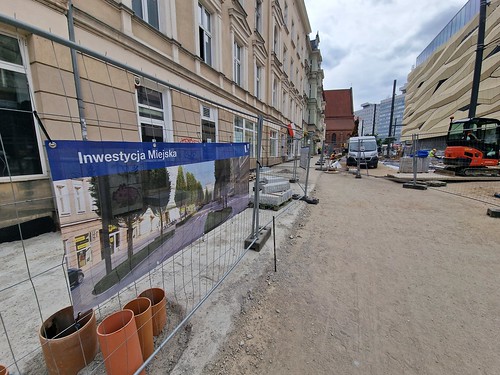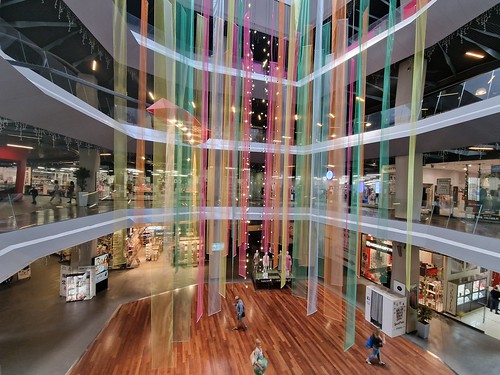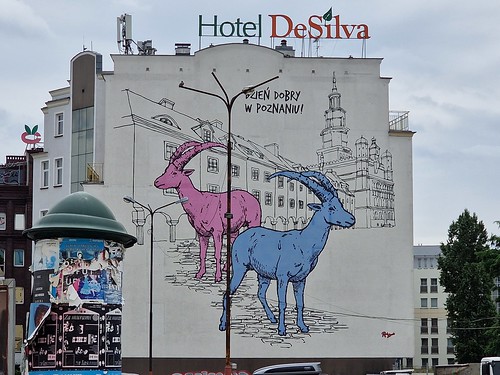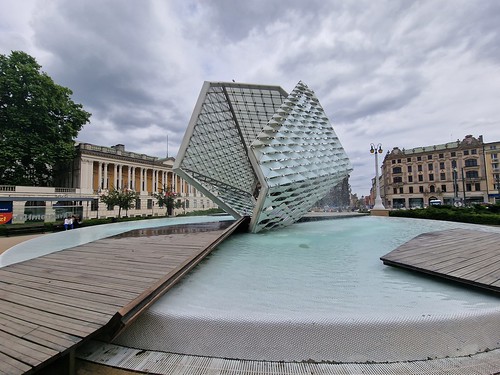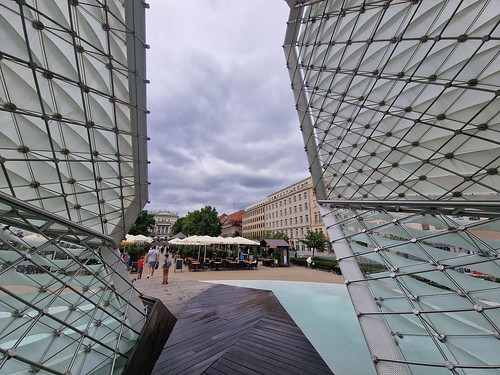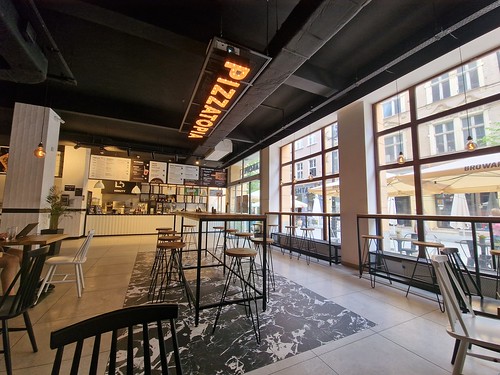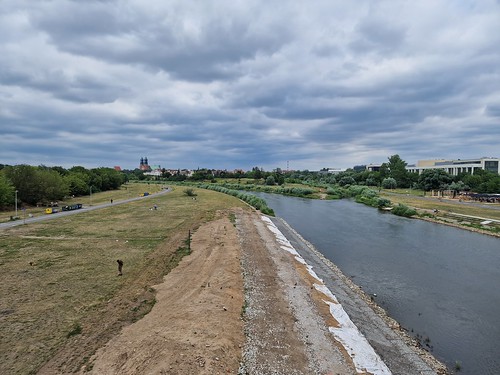Thursday : Pizza, Beer and Goodbye to the Prime Minister
I didn’t get breakfast at the Ibis hotel that I was staying at, so I moved my office operations to the city centre Cukiernia Sowa. Look at all that healthy produce!
I went for hot chocolate with cream and a blueberry tart. I’m not going to get involved with politics on this blog other than to say that it tasted all the better for hearing the news during my breakfast that Boris Johnson had resigned.
No, not Jeremy Corbyn, this is the fictional character of Stary Marych, notable for his Poznan dialect which has evolved from this city bouncing between Germany and Poland. It was the Prussian city of Posen until it was restored to Poland in the years following the end of the First World War.
The basilica on the left and the City Hall on the right.
The rather lovely Fryderyka Chopina Park. What is now the City Hall was a Jesuit College between 1572 and 1773 and this park was once the botanical garden for the monks. The communist authorities put a kindergarten here following the Second World War and used the park as the playground, but it has recently been restored again so that the public can access it. Plenty of trees and shady spots, they’ve done a nice job of it.
Given that the park is named after Chopin, I think the statue that was unveiled to him in 1923 is a little small and doesn’t even stand out in the photo. It survived the Second World War because they hid it in 1939, but apparently this one is a copy as the original was damaged in 1997, although I’m not sure how.
I like it when cities provide interesting photo comparisons such as this.
The area in front of the City Hall offices. As an aside, I like the amount of seating everywhere in Poznan.
This looked like something intriguing for me to walk.
And it led to the ballet school, which was once part of the Jesuit buildings. It was used as a school until the middle of the nineteenth century when it became residential buildings, before its new lease of life as the School of Decorative Arts in 1921. It was badly damaged during the Second World War, but was reconstructed between 1954 and 1957.
A little memorial to Olga Sławska (1915-1991) who was the founder and creator of the school, but also a dancer of national importance. Her professional career had ended when the war had broken out, when she also lost her husband, although he had been a wealthy man and so she was able to use that money to create the school. She died in Poznan on 29 April 1991, which was International Dance Day.
The outside of the building. I’m also impressed how the city has put so many information plaques about their buildings around Poznan, shows a certain kind of civic pride I think.
The Roman Catholic Poznań Fara, or more formally known as the Basilica of Our Lady of Perpetual Help, Mary Magdalene and St. Stanislaus, which has held basilica status since 2010.
The building was constructed between 1651 and 1701, using craftsmen from Poland and Italy, which perhaps explains some of the design features internally. Much of the interior was damaged during the Second World War when the Germans used the building as a warehouse, but it structurally survived the conflict relatively undamaged.
The richly decorated interior and those red columns, of which there are sixteen, are entirely decorative and aren’t supporting the structure.
I particularly like the design of those spiral columns in the aisles. I’m sure there’s an architectural name for them, but I don’t know what it is.
A chapel dedicated to Pope John Paul II.
They’re currently digging up the city’s main market square, another major development project to further improve the look of Poznan. This city has always had an air of confidence about it and it’s also one of the wealthiest cities in Poland and has the lowest level of unemployment, which is not far off zero.
The development work has somewhat changed the atmosphere of the square, it’s not quite as peaceful and relaxing to sit outside the restaurants and cafes now. But some of the cafes were still trying their best to carry on as normal.
The monuments around the square are being carefully protected and I like looking into the holes, to try and see the history of how the square developed over time. I couldn’t really see any interesting layers, it just looked like sand everywhere.
The colourful buildings will soon enough look out to a beautiful square.
A sign about the project, which as they note isn’t going to be completed until the third quarter of 2023, so this is a substantial period of change for the city.
I also don’t think that the project has been going for that long, given how much they still seem to be digging up.
They’ve marked on pavements where the city wall used to stand between 1253 and 1793. There are some parts of the walls and towers still visible, although they’re nearly all reconstructions. During the nineteenth century, Poznan also got an outer line of defences further out, when it became known as a fortress city.
Buildings being renovated everywhere.
The Children’s Hospital which was established in 1876, although I think this frontage belongs to the Holy Family Chapel.
The parish church of St. Martin, which signage at the site helpfully notes is the oldest on the left bank of the Warta river, so that’s most of Poznan. The oldest in the city is Poznan Cathedral, on the island of Ostrów Tumsk, which is also the oldest Polish cathedral.
The other end of the church, which was first built in the thirteenth century, before Poznan was even formally founded. The present building is from the early sixteenth century, but it had to be repaired in the 1950s as it suffered from substantial damage during the Second World War.
As this sign notes, the first monument in Poland commemorating Adam Mickiewicz (1798-1855) was placed here in 1859, but the Germans removed it during the Second World War. That’s not really surprising, he’s known as one of the great Polish poets and authors, he didn’t quite fit into the Nazi mould and the sort of culture they wanted following their invasion in 1939.
Piotr Wawrzyniak (1849-1910), a Roman Catholic Priest and economist who was important because of his role in promoting the Polish national movement, although I’m not sure that the Prussians appreciated that effort at the time.
They’re digging up large chunks of the city, I suspect it’s going to make it much better when they’ve finished. The money that is pouring into improvements across Poland is impressive and using it for civic projects seems entirely sensible. Although I suppose they could also fund the creation of a Craft Beer Quarter if they had any money left over.
A quick look inside the Galeria MM shopping centre, which isn’t one of the most exciting and takes its name as the two streets that it is located on both begin with the letter M. As good a reason as any I suppose.
Some artwork relating to the Poznan Goats, one of the icons of the city.
It’s not too hot in Poland at the moment, much to my great relief, but this is one of my favourite installations as it helps in keeping people cool if nothing else.
It’s also quite attractive, so a public installation that’s appealing to the eye and helps them cool down.
It’s possible to walk through the middle of the arrangement, which I did on a few occasions as I’m easily pleased by these things.
I didn’t entirely understand this set-up, but it seems to be mostly little sheds selling a variety of food and drink. Like food trucks, but more permanent.
A statue and water fountain.
It was clearly too cold for most people to sit outside, but this is my perfect weather, sitting outside in the wind. I hadn’t had this beer before and perfectly acceptable it was too. The staff member at the stall I selected didn’t speak English, so I was fortunate my Polish language skills include knowing nearly every style of beer that I like. I can’t do anything useful like converse with people, but I can order beer. But that’s enough I think, no point overloading myself with complexity.
All the other customers enjoying the cold.
Pizzatopia and this was bloody lovely. It’s a concept based around craft beer and pizza, so that’s a winner straight away. The system is like Subway, you choose your pizza base, the sauce, the cheese, the toppings and so on, and it’s cooked in just a few minutes. The team members were very engaging and helpfully spoke English, although they’ve put the options in English and Polish which also assists matters.
One of the best pizzas I’ve had, with a very decent IPA to go with it. Very much recommended, this is one of my favourite pizza places and it reminds me of Blaze Pizza in Pasadena, Los Angeles, which had a similar set-up but which didn’t have the craft beer (although it might have done, I can’t remember). Definitely recommended, they’re a small chain at the moment, but I suspect they’ll get bigger quickly with this sort of offering.
And I went for a walk by the River Warta, enjoying that it wasn’t too hot. With the knowledge that Britain will be getting a new Prime Minister, it was a memorable day.

